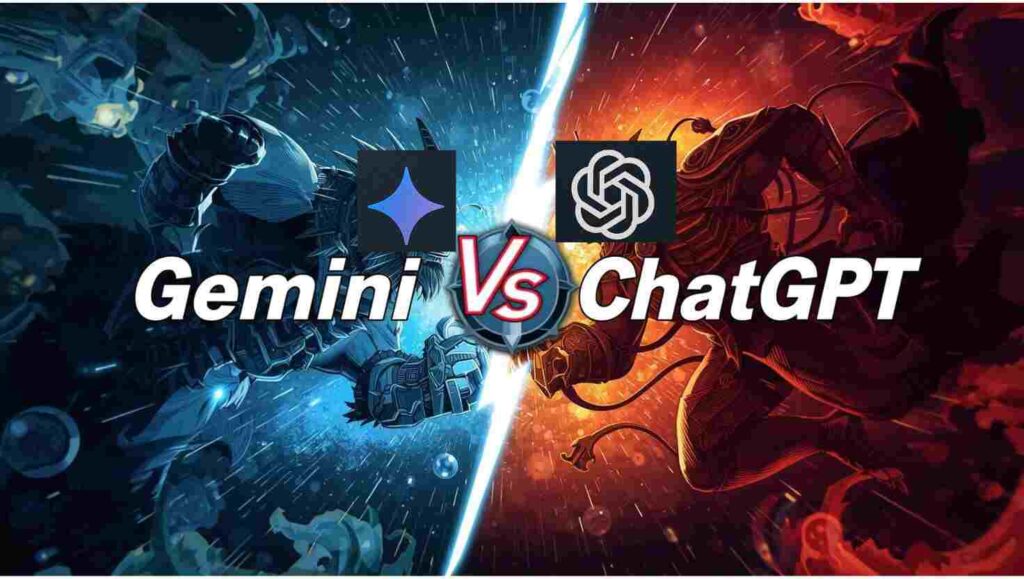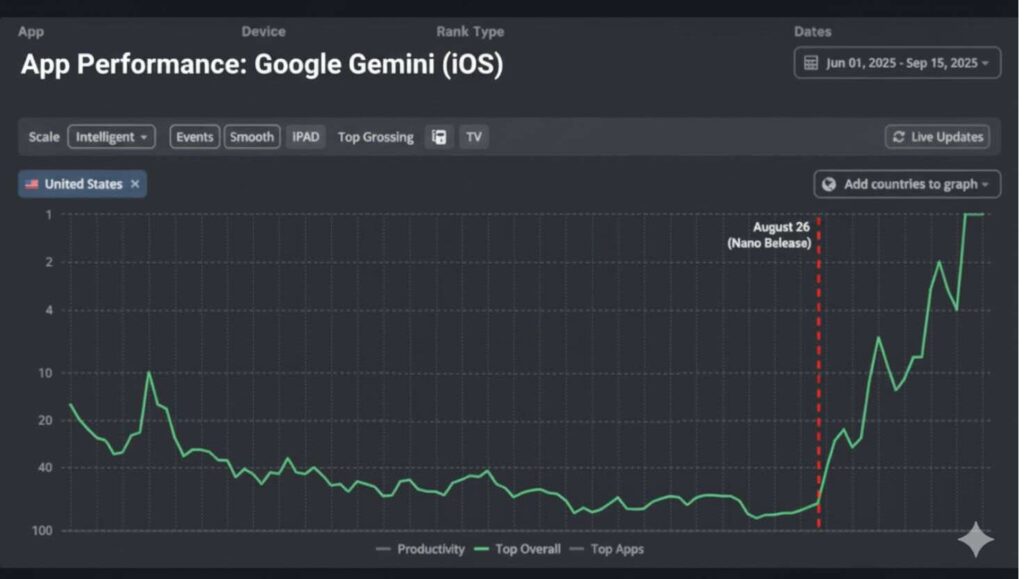Why did Gemini overtake ChatGPT in the rankings?
Gemini Rising: Has Google’s AI Finally Eclipsed ChatGPT A seismic shift is occurring in the artificial intelligence landscape. For the first time, Google’s Gemini has surged ahead of OpenAI‘s ChatGPT in key rankings, sparking a heated debate: has the long-reigning king of chatbots finally been dethroned? While the answer is nuanced, recent trends and key advantages suggest that Gemini is not just catching up but is, in many ways, forging a new path for AI dominance.
ChatGPT vs Gemini paid
Trying to decide between ChatGPT Plus vs Gemini Advanced for your AI needs? Our comprehensive guide breaks down the key differences to help you choose the ideal paid AI chatbot for your workflow. Discover which premium subscription offers superior performance, advanced features, and better value for your investment. Make an informed decision and elevate your AI experience today!
Why Did Gemini Overtake ChatGPT in the Rankings?
In mid-September 2025, Google’s Gemini app unexpectedly surged ahead of OpenAI’s ChatGPT in app store rankings, claiming the top unpaid spot in both iOS’s App Store and Android’s Google Play.
Go to Homepage
For many, this triggered a big question: What changed? Why did users suddenly favor Gemini over an incumbent like ChatGPT? Below are the main drivers behind Gemini’s rapid ascent.
1. The “Nano Banana” Image-Editing Trend
A major catalyst was Gemini’s new image‐editing feature called Nano Banana.
- It lets users transform ordinary photos into highly stylized 3D figurine‐style portraits.
- useThe feature went viral in a short time: millions of users, hundreds of millions of images generated.
- Because it’s visually compelling, it spread fast on social media, giving Gemini strong organic growth.
In short: Nano Banana gave Gemini a hook—something new, fun, shareable—that appealed to many beyond the core chatbot user base.

2. Massive User Growth & Ecosystem Leverage
Gemini has been rapidly growing its user base, especially through Google’s reach in devices and existing infrastructure.
- It’s been reported that Gemini has 450 million+ monthly active users (MAUs), with daily usage up over 50% quarter-over-quarter in India alone.
- In many Android phones, Google apps are pre-installed, which helps with awareness and lowers friction for trying out Gemini.
- Google also used special offers (e.g. unpaid access for students in India) and integrations with its broader AI tools (Notebook LM, etc.) to draw users in.

Because Google controls a large OS / app / search ecosystem, it can push adoption more aggressively than competitors who depend purely on user discovery.
3. Strong Benchmark Performance & Multimodal Capabilities
Gemini has been scoring high on benchmarks, especially in language, reasoning, mathematics, and multimodal tasks (i.e., tasks combining vision, text, etc.).
- For example, Google claimed that Gemini Ultra outperforms human experts on the MMLU test (a broad test of reasoning and academic skills), and has strong performance on many academic benchmarks.
- Gemini’s ability to process images (and now with Nano Banana, stylize them), understand video/audio or mixed input types gives it an edge in “multimodal” use cases. Users increasingly expect that kind of flexibility.
So in terms of raw AI ability—for language & reasoning and combination tasks—Gemini is no longer just “catching up”; on many measures it is leading or at least very competitive with ChatGPT. That helps with building trust and adoption.
4. Market Trends & Competitive Fatigue
Finally, part of Gemini’s rise is also due to changing user preferences and some “fatigue” or limitations users feel with ChatGPT.
- After years of dominating, ChatGPT faces higher expectations. Users want more than text conversations—they want richer experiences (images, video, interactivity, etc.). Gemini’s newer features meet those demands.
- In app-store metrics, what matters isn’t just how “smart” your AI is—it’s what users can do with it, how much fun or useful or novel the experience feels. Gemini’s innovations like Nano Banana provide novelty that gets people to try, share, and stick with the app.
- Also, Google’s ecosystem advantages (search integration, trust, outreach) coupled with aggressive product updates reduce lag behind OpenAI’s offerings. Users may have felt Gemini was “behind,” but recent revisions and releases have closed that gap.
5. What This Doesn’t Mean (Yet)
It’s important to note that overtaking ChatGPT in app ranking doesn’t necessarily mean “dominance” in all metrics.
- ChatGPT may still lead in certain markets, or for certain demographics (e.g. younger users), or in web traffic.
- There’s still scrutiny over reliability, hallucinations, safety, etc. AI benchmarks are one thing; user experience over longer term is another.
- Also, trends can shift fast. Viral tools help give momentum, but sustaining that position requires consistent product improvement, good policies, and avoiding missteps.
Conclusion
In sum, Gemini overtook ChatGPT in app store rankings because it combined:
- A viral new feature (Nano Banana) that captured attention
- Massive leverage through Google’s ecosystem and device reach
- Solid performance on benchmarks and multimodal AI abilities
- Meeting changing user expectations toward richer AI interaction
For ChatGPT, sustaining its leadership will require continuing to innovate, integrating more modalities, ensuring user satisfaction, and responding to competition like Gemini that’s increasingly capable.
